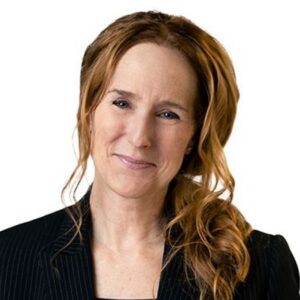Engaging families
Successful relations with our residents require that we establish trusting, lasting relationships with their families. Sometimes that is easier to say than it is to actually execute. Families are spread across the country, there are more family members requesting to be involved, the legal decision making is often shared among many siblings, consumers have become educated (and at times, pessimistic) about long-term care services, and placement decisions are frequently made during a crisis. All of these variables could be viewed as obstacles to successful relationship-building.
However, armed with knowledge and a “customer experience” mind-set, we can overcome those potential obstacles and create relationships that both residents and their families view as valuable and successful.
Making decisions
How do families decide where their loved ones will be placed? Often the decision is made at the height of a crisis: Mom wandered away, dad fell and broke his hip, auntie mismanaged her 18 medications and had an adverse reaction. Regardless of the issue, decisions are made quickly. We know that several factors come into play before a final decision is made. Yet families tell us that the initial staff connection is of particular importance to them. If they feel that they are part of a “transaction” as opposed to a relationship, they will take their business elsewhere. This is our first opportunity to establish the relationship and the time invested up front will pay dividends.
Relationship building
It is highly important to transition ourselves from a transaction-oriented sales process to a real relationship-building experience. Decisions to place loved ones in the care of someone else are heartbreaking. Family members often have guilt about placement-especially if they’ve promised they would never do that. Searching for a community can be frustrating and confusing. We often lose sight of how complicated the healthcare environment is because this is the life we live day in and out. For residents and their families this can be the first exposure to our industry. We need to remember this and at every interaction focus on being the experts by educating the resident/family members. That guidance is another powerful relationship-building tool.
Once a family has decided to place its loved one at your community, take the opportunity to establish move-in criteria. All paperwork should be completed prior to the move-in, all medications should be present, and the resident’s room should be set up with his or her personal belongings. Every staff member in the community should be aware that the resident is coming and should know some interesting personal information about them as a way to start conversations. Having everything ready at move-in enables the community’s staff to focus on the resident/family member’s integration into the community.
Another great relationship-building tool is to set a first-week goal with the family member. This could be as simple as ensuring that “mom” has attended one activity and met one resident with similar interests. The power in this goal-setting is that the community and family member are establishing it together. It demonstrates collaboration; when it is achieved at the end of week one it is your first opportunity to demonstrate that you can deliver on your promises.
Expectations up front
Setting communication expectations up front is a great way to prevent many future problems. Lack of communication is one of the biggest customer dissatisfiers in healthcare, according to satisfaction polls. Find out who needs to be communicated to, about what, and when-billing issues, medical issues, invites to attend events, etc. Also establish the family’s preferred communication methods. Is e-mail easiest? Do they want voice contact? Is cell phone the easiest way to reach them? This is the single most important relationship-building tool that you have access to.
Addressing problems
After move-in, issues will arise because we are individuals caring for individuals. The very nature of what we do sets the stage for conflict. How we address problems can further enhance or erode our relationships. There are key concepts to keep in mind:
Do it right the first time. Service recovery becomes unnecessary.
Welcome and encourage complaints. You cannot solve what you do not know exists. View all feedback (both positive and negative) as a gift.
Apologize for the issue and inconvenience. Apologizing is not an admittance of guilt. It is purely an empathetic response to someone’s distress.
Act quickly to address the issue. If you cannot fix it, then at least set timelines for communication and meet them.
Be proactive in all communications by delivering messages or conveying information as far in advance as possible. If you know a family is unhappy about something, reach out to them immediately. Do not wait for them to seek you out. Be positive and genuinely invested in resolving their concerns. Think about the issues that you have raised with any establishment. Did you want resolution immediately or whenever they got around to it?
Consumer research has indicated that five of six people who complain will still do business with you even if the problem is not resolved to their level of satisfaction if you are perceived as friendly, nondefensive, and committed to the relationship. Conversely, three of six customers who complain and have their issues resolved will stop doing business with you if they feel you are defensive and don’t care about them.
Family support
Establish a family support program. Engaging families in the community further enhances successful relationships and partnerships. Create a family buddy program-this is designed by current family members to support and integrate new families coming into the community. Schedule routine family gatherings at your community and have all department heads and primary frontline associates there. Host a Web site or refer to a Web site that has numerous healthcare and senior caregiving resources as a reference.
Another great relationship-building tool is to set a first-week goal with the family member.
Get Skype (it’s free) for your community so that residents can connect live and in “virtual” person to family members who live out of state. This presents an opportunity for residents to see grandchildren and great-grandchildren for the first time! Set up time with family members to check in and see how the resident is doing. Caregiving doesn’t go away after placement, it just changes. Acknowledge the challenges that your family members continue to experience and be there for them as an active listening friend.
Once successful relationships have been established and families are completely engaged, the true partnership can occur. Those families become your biggest advocates in the marketplace. They become your eyes and ears for quality resident experiences and process improvement. They become friends and members of your community family. As friends, they understand missteps and allow for mistakes. They appreciate what you do for their loved ones while in your care.
Never-ending relationship
Yet once the resident passes away, the fear is that the relationship ends. Or does it? I would argue that this is your opportunity to keep your family member permanently engaged. Remember, the engaged family member has established relationships with you, your staff, other residents, and other family members. Losing their loved one can become even more painful with the realization that they may no longer see their community family. Assure them that the relationship you have is lasting. Invite them to be a “family buddy.” Invite them to volunteer. Have them blog about their great experiences at your community. Invite them to all family events. If done right, engagement can and should be enduring and doesn’t end when a loved one leaves.
I would like to end with a great quote by Virginia Satir, an American psychologist and educator: “Feelings of worth can flourish only in an atmosphere where individual differences are appreciated, mistakes are tolerated, communication is open, and rules are flexible-the kind of atmosphere that is found in a nurturing family.”
Brenda Abbott-Shultz is the Vice President of Resident and Family Services for Benchmark Assisted Living (BAL). She has more than 20 years of experience in the senior care industry focusing primarily on the needs of assisted living and nursing home residents. Ms. Abbott-Shultz provides the strategic and operational oversight of the BAL Resident Care department. She can be reached at
bashultz@benchmarkquality.com. Long-Term Living 2010 October;59(10):36-40
I Advance Senior Care is the industry-leading source for practical, in-depth, business-building, and resident care information for owners, executives, administrators, and directors of nursing at assisted living communities, skilled nursing facilities, post-acute facilities, and continuing care retirement communities. The I Advance Senior Care editorial team and industry experts provide market analysis, strategic direction, policy commentary, clinical best-practices, business management, and technology breakthroughs.
I Advance Senior Care is part of the Institute for the Advancement of Senior Care and published by Plain-English Health Care.
Related Articles
Topics: Articles , Leadership











